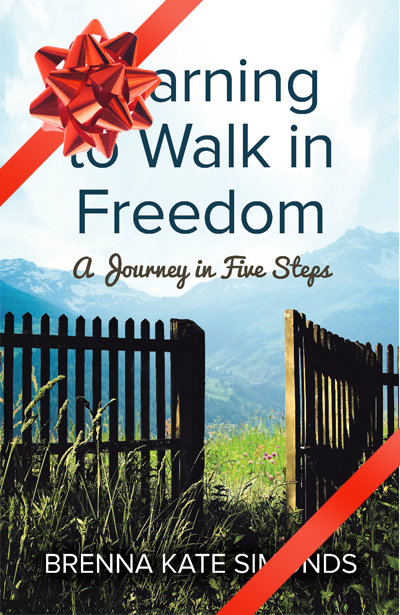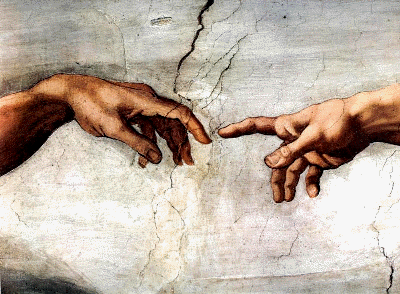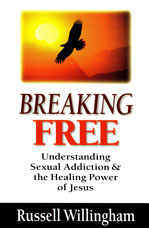Today the temperature is going to be 98 degrees, with a heat index of 105! I’ve already gone for a 4 mile run at 6 aM, 80 degrees and 80% humidity. Wow! My hottest run of the season so far.
We are hoping to leave the city early to beat the heat, but I wanted to leave you with a few thoughts.
Last week, I wrote about Is Brokenness a Blessing? I received quite a few comments, both here & on Facebook, about the truth of that post. Thanks to all who commented.
I came across some more truths in my study this week that directly relate to this question.
First, I was reading “Breaking Free” by Russell Willingham. The 10th chapter is on grace.
Willingham says this: “Embracing God’s grace will give you the freedom to fail.” He also says, “Whether you extend grace to yourself or hold yourself to a ruthless standard of legalism, you will still fail.”
Willingham explains later that he’s not talking about the freedom to continue making destructive choices. Rather, he clarifies, “In what area, then, are you free to fail? You are free – now don’t miss this – to be imperfect.”
As I read that, I thought, “That’s what I mean by being comfortable with my brokenness!” It’s not about accepting and embracing my faults or the unhealthy ways my brokenness may manifest itself. It’s about saying I’m imperfect, and that’s OK.
Before I share more on this, I want to write about another experience that relates.
I was listening to a podcast, and the speaker referenced a book she was reading. She said, “The times when we are the most vulnerable are not when we are weak; it’s when we are strong.” The author of the book (she did not mention his name) spoke of how his ministry had humble beginnings, with a heavy reliance on God’s strength, provision, and direction. As the ministry grew, he began to do things without asking his leadership, his wife, or even God. He got to the point where he felt his strength was the only thing he needed to carry him.
Upon hearing this, my mind immediately went to 2 Corinthians 12. Was that the danger Paul was falling into? After all, he shares that the thorn was given to him to keep him from becoming conceited. Was he trying to overcome the thorn with his own strength? Had he forgotten his humble beginnings, his own brokenness?
When Paul asked God to take his thorn away, hear how God responded: “My grace is sufficient for you, for my power is made perfect in weakness.”
I can almost see the lightbulb go on in Paul’s head as he thought, “Oh, yeah! It’s OK to be imperfect! God views weakness as a good thing!”
Now see how Paul then responds to God: “Most gladly, therefore, I will rather boast about my weaknesses, so that the power of Christ may dwell in me. Therefore I am well content with weaknesses, with insults, with distresses, with persecutions, with difficulties, for Christ’s sake; for when I am weak, then I am strong.”
Are you well content with your weakness?
Paul came face to face with his own brokenness, his imperfection. In that place is where God can really work – if we will let him.
A woman I know, when she comes face to face with an issue in her life, is often sent plummeting. Instead of turning that area of weakness or need for growth over to God and asking for His help to work on it, her default setting is to be sent spiraling into despair, as if the issue at hand somehow proves the worthlessness she already wrestles with.
I understand being in that place. I used to be there.
Every failure or perceived weakness, large or small, was proof of my inherent inadequacy. Well, that’s sort of true! But I was using that truth as a battering ram to my soul, not as a realization that I am imperfect – just like everyone else.
Russell Willingham uses the analogy of how a baby learns to walk. If the baby tries and falls, and the parents respond by clapping and saying, “Good job! Try again!”, then the baby feels safe to try again. If the parents instead respond, “What is wrong with you? Can’t you do anything right?”, the baby may very well give up trying.
Willingham concludes, “In order to learn a new behavior, an atmosphere must exist that allows for failure.”
With which voice do you speak to yourself? The accepting, loving, gracious voice? Or the condemning, belittling, shaming voice?
If I begin to rely on my own strength and accomplishments, my failures can become an indicator of my worth. If I am, instead, continually aware of and comfortable with my brokenness, this gives me the freedom and the confidence to fail. It keeps me mindful of the fact that apart from Christ, I can do nothing. It’s that simple.
It also causes me to remember that my struggles and my trials are not as unique as I think they are. Often we can use our specific issues to isolate ourselves. We drown in them because we are convinced not only that no one will understand, but even if they did, nothing will ever change.
Paul implores us to rather be well content with our weaknesses. Why? Because that’s where God’s power can come to rest.
The freedom found in brokenness is the freedom to not have to do it in your own strength. In our admission of brokenness and weakness, and in our declaration that grace allows room for failure, that’s where Christ is able to be strong.
Relational Masks by friend and mentor Russell Willingham talks about more about the concept of core beliefs and how these false beliefs impact our relationship with God and with each other. He wrote another great book entitled Breaking Free: Understanding Sexual Addiction & the Healing Power of Jesus.

Think Differently, Live Differently by friend Bob Hamp addresses how the way we think impacts our choices and the truth we live out of.









